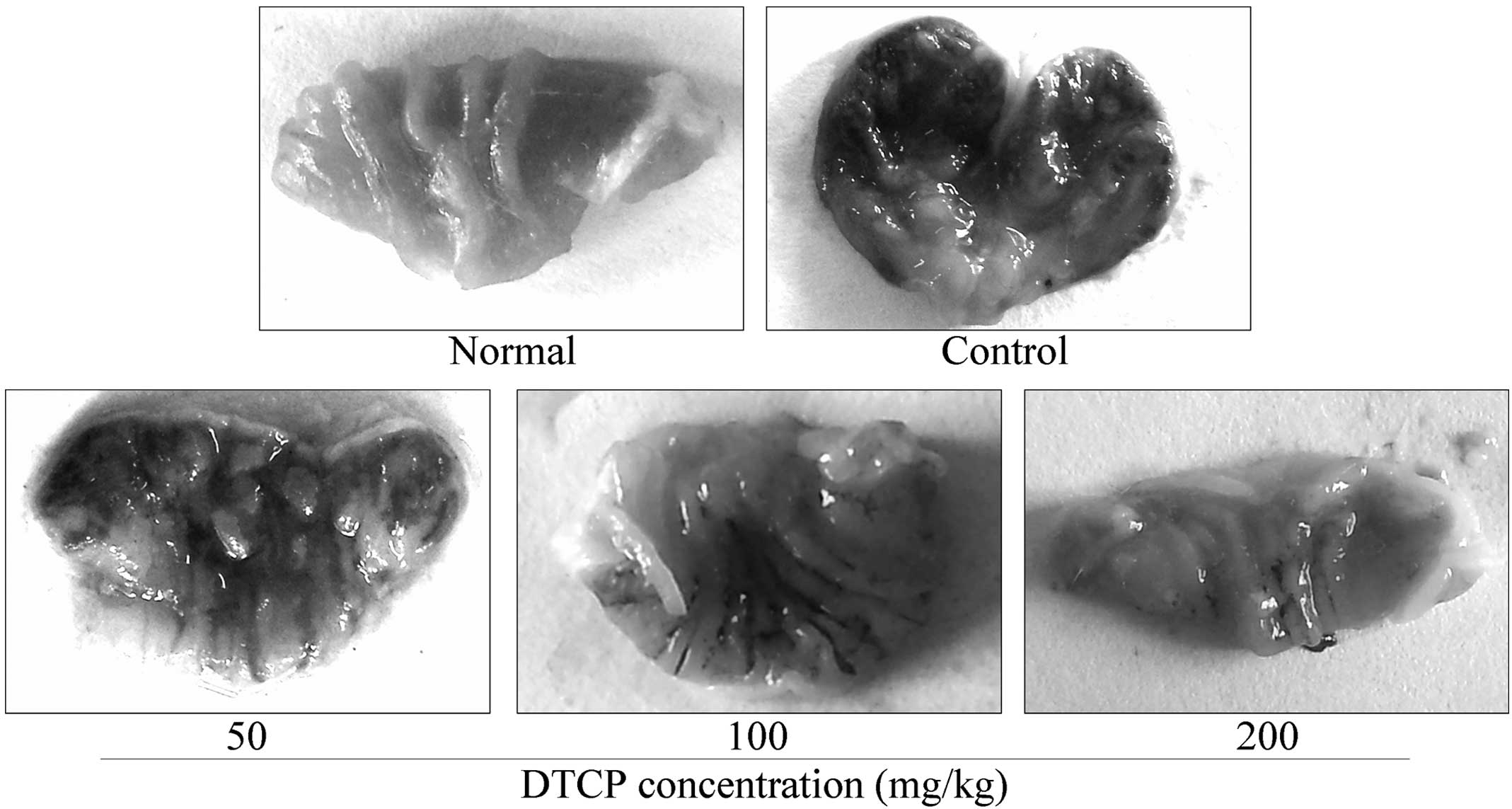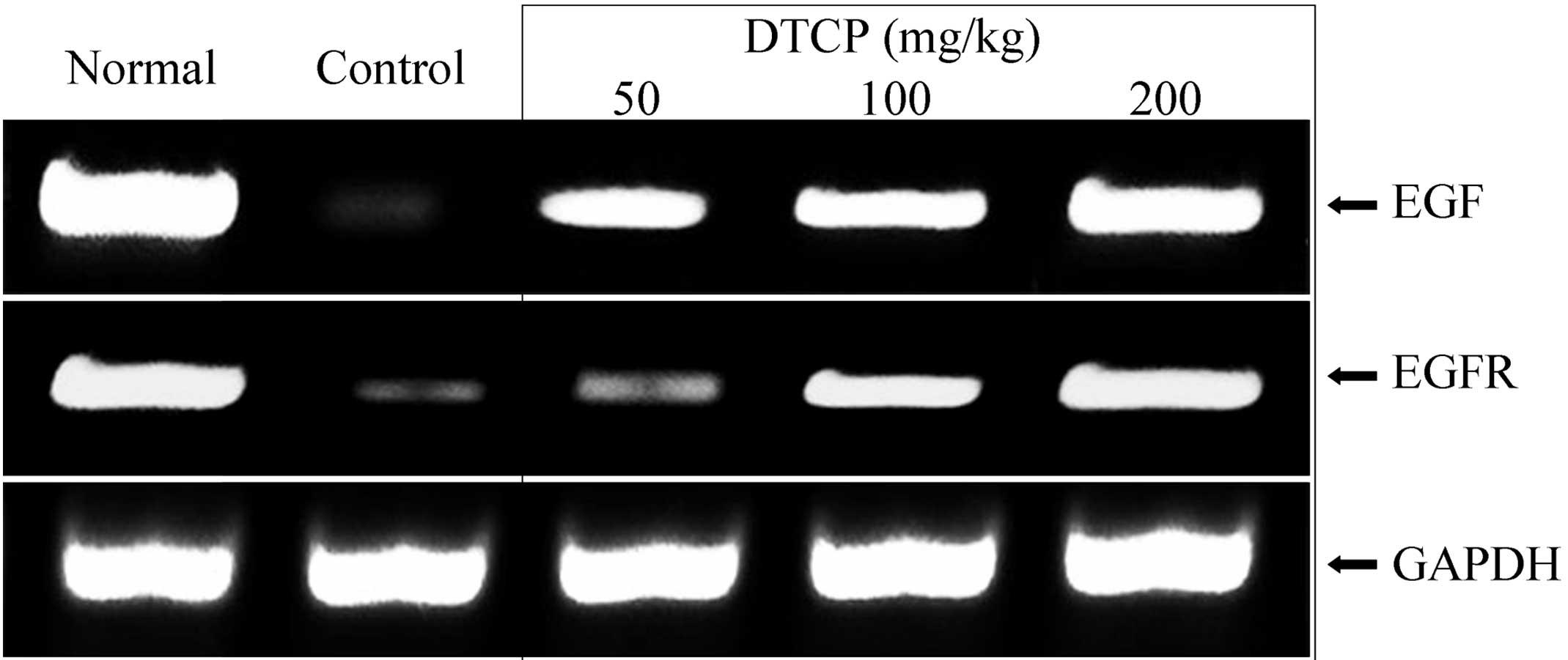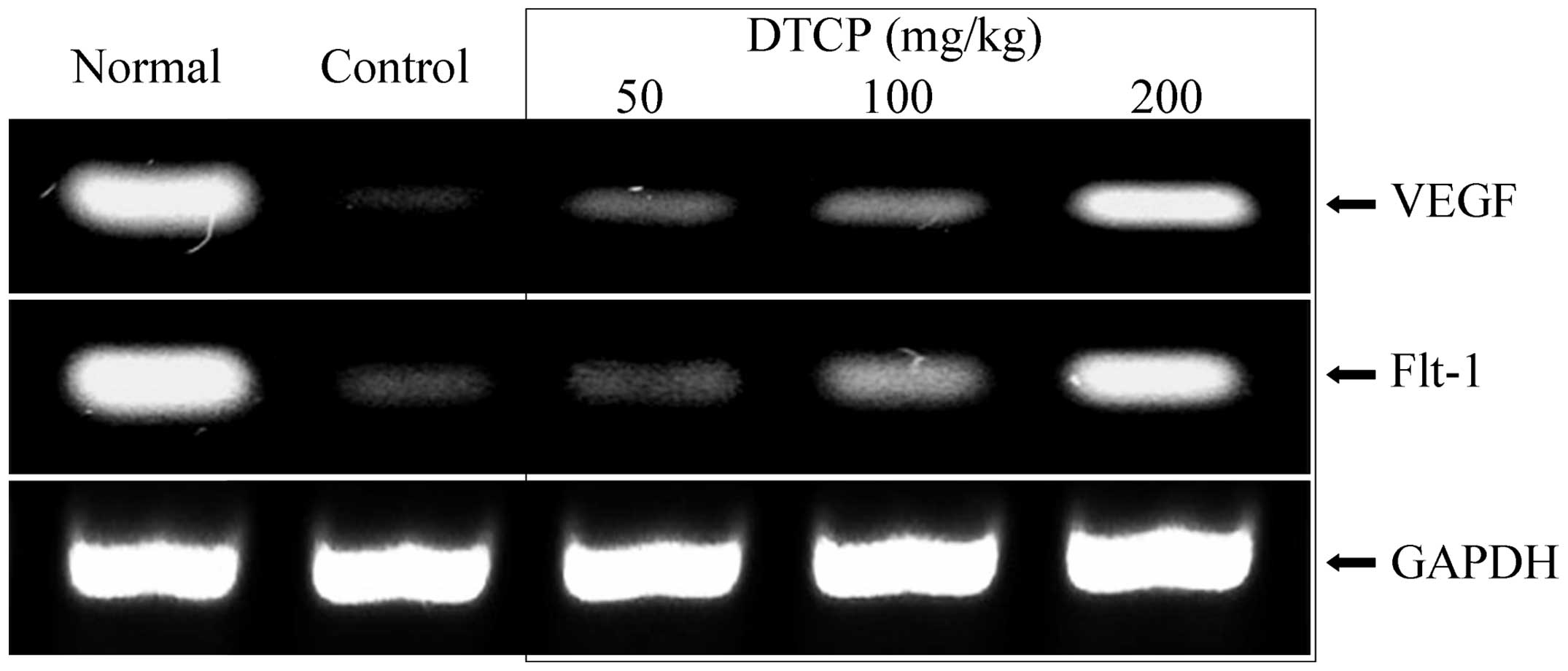|
1
|
Su GF, Liang SJ, Dai WZ and Huang JC: The
utilization and analyses of nutritive ingredients in Dragon-pearl
tea. Guang Xi Shi Fan Da Xue Xue Bao. 11:63–66. 1993.(In
Chinese).
|
|
2
|
Sharangi AB: Medicinal and therapeutic
potentialities of tea (Camellia sinensis L.) - A review. Food Res
Int. 42:529–535. 2009. View Article : Google Scholar
|
|
3
|
Benowitz NL: Clinical pharmacology of
caffeine. Annu Rev Med. 41:277–288. 1990. View Article : Google Scholar : PubMed/NCBI
|
|
4
|
Maity S, Vedasiromoni JR and Ganguly DK:
Anti-ulcer effect of the hot water extract of black tea (Camellia
sinensis). J Ethnopharmacol. 46:167–174. 1995. View Article : Google Scholar : PubMed/NCBI
|
|
5
|
Correa P, Fontham ET, Bravo JC, Bravo LE,
Ruiz B, Zarama G, Realpe JL, Malcom GT, Li D, Johnson WD and Mera
R: Chemoprevention of gastric dysplasia: Randomized trial of
antioxidant supplements and anti-Helicobacter pylori therapy. J
Natl Cancer Inst. 92:1881–1888. 2000. View Article : Google Scholar : PubMed/NCBI
|
|
6
|
Mu LN, Lu QY, Yu SZ, Jiang QW, Cao W, You
NC, Setiawan VW, Zhou XF, Ding BG, Wang RH, et al: Green tea
drinking and multigenetic index on the risk of stomach cancer in a
Chinese population. Int J Cancer. 116:972–983. 2005. View Article : Google Scholar : PubMed/NCBI
|
|
7
|
Zhou F, Shen T, Duan T, Xu YY, Khor SC, Li
J, Ge J, Zheng YF, Hsu S, DE Stefano J, et al: Antioxidant effects
of lipophilic tea polyphenols on
diethylnitrosamine/phenobarbital-induced hepatocarcinogenesis in
rats. In Vivo. 28:495–503. 2014.PubMed/NCBI
|
|
8
|
Yu X, Xu X and Su J: Protective effects of
nanometer selenium on acute gastric mucosal lesion in rats. J Hyg
Res. 37:594–586. 2008.(In Chinese).
|
|
9
|
Fu XC, Shan HL, Bai HB and Hu R:
Protective effect of Jiangbaiweiyan tablet on ethanol-induced
gastric mucosa injury in rats. J Zhejiang Univ (Med Sci).
40:391–394. 2011.(In Chinese).
|
|
10
|
Wang Q, Zhao X, Qian Y and Wang R: In
vitro antioxidative activity of yellow tea and its in vivo
preventive effect on gastric injury. Exp Ther Med. 6:423–426.
2013.PubMed/NCBI
|
|
11
|
Li GJ, Sun P, Wang R, Zhou YL, Qian Y and
Zhao X: Preventive effect of polysaccharide of Larimichthys crocea
swim bladder on reserpine induced gastric ulcer in ICR mice. Korean
J Physiol Pharmacol. 18:183–190. 2014. View Article : Google Scholar : PubMed/NCBI
|
|
12
|
Chen S, Zhu K, Wang R and Zhao X:
Preventive effect of polysaccharides from the large yellow croaker
swim bladder on HCl/ethanol induced gastric injury in mice. Exp
Ther Med. 8:316–322. 2014.PubMed/NCBI
|
|
13
|
Zhao X, Wang Q, Li GJ, Chen F, Qian Y and
Wang R: In vitro antioxidant, anti-mutagenic, anti-cancer and
anti-angiogenic effects of Chinese Bowl tea. J Funct Foods.
7:590–598. 2014. View Article : Google Scholar
|
|
14
|
Choi SR, Lee SA, Kim YJ, Ok CY, Lee HJ and
Hahm KB: Role of heat shock proteins in gastric inflammation and
ulcer healing = J Physiol Pharmacol. 60:(Suppl 7). 5–17.
2009.PubMed/NCBI
|
|
15
|
Lorentzon P, Bayati A, Lee H and Andersson
K: Selective inhibition of the gastric H+,K(+)-ATPase by omeprazole
and related compounds. Ann N Y Acad Sci. 834:592–599. 1997.
View Article : Google Scholar : PubMed/NCBI
|
|
16
|
Valko M, Leibfritz D, Moncol J, Cronin MT,
Mazur M and Telser J: Free radicals and antioxidants in normal
physiological functions and human disease. Int J Biochem Cell Biol.
39:44–84. 2007. View Article : Google Scholar : PubMed/NCBI
|
|
17
|
Li J and Wang Y: Effect of different
methods of hypoxic exercise training on free radical oxidation and
antioxidant enzyme activity in the rat brain. Biomed Rep.
1:925–929. 2013.PubMed/NCBI
|
|
18
|
Yu GY, Song XF, Liu Y and Sun ZW: Inhaled
formaldehyde induces bone marrow toxicity via oxidative stress in
exposed mice. Asian Pac J Cancer Prev. 15:5253–5257. 2014.
View Article : Google Scholar : PubMed/NCBI
|
|
19
|
Haggag MS, Elsanhoty RM and Ramadan MF:
Impact of dietary oils and fats on lipid peroxidation in liver and
blood of albino rats. Asian Pac J Trop Biomed. 4:52–58. 2014.
View Article : Google Scholar : PubMed/NCBI
|
|
20
|
Huang W, Li L, Tian X, Yan J, Yang X, Wang
X, Liao G and Qiu G: Astragalus and Paeoniae radix rubra extract
inhibits liver fibrosis by modulating the transforming growth
factor-β/Smad pathway in rats. Mol Med Rep. 11:805–814.
2015.PubMed/NCBI
|
|
21
|
A XR, Zhang XS and Liu LP: Change of free
radicals in levels of machinese in patients with peptic ulcer at
medium altitude. Zhongguo Xian Dai Yi Xue Za Zhi. 16:666–668.
2006.(In Chinese).
|
|
22
|
Nagy L, Mózsik G, Vincze A, Süto G,
Hunyady B, Rinfel J, Past T and Jávor T: Effects of a novel
Hungarian antacid containing Al and Mg (Tisacid) on mucosal
prostaglandin generation and oxygen free radicals in normal rats.
Drugs Exp Clin Res. 16:197–203. 1990.PubMed/NCBI
|
|
23
|
Mohan Kumar M, Joshi MC, Prabha T,
Dorababu M and Goel RK: Effect of plantain banana on gastric
ulceration in NIDDM rats: Role of gastric mucosal glycoproteins,
cell proliferation, antioxidants and free radicals. Indian J Exp
Biol. 44:292–299. 2006.PubMed/NCBI
|
|
24
|
Choi DJ, Kim SL, Choi JW and Park YI:
Neuroprotective effects of corn silk maysin via inhibition of
H2O2-induced apoptotic cell death in SK-N-MC
cells. Life Sci. 109:57–64. 2014. View Article : Google Scholar : PubMed/NCBI
|
|
25
|
Demitrack ES, Soleimani M and Montrose MH:
Damage to the gastric epithelium activates cellular bicarbonate
secretion via SLC26A9 Cl(–)/HCO(3)(–). Am J Physiol Gastrointest
Liver Physiol. 299:G255–G264. 2010. View Article : Google Scholar : PubMed/NCBI
|
|
26
|
Li WF, Hao DJ, Fan T, Huang HM, Yao H and
Niu XF: Protective effect of chelerythrine against ethanol-induced
gastric ulcer in mice. Chem Biol Interact. 208:18–27. 2014.
View Article : Google Scholar : PubMed/NCBI
|
|
27
|
Liu KY, Zhu Y and Huang XZ: Effect of
Pongamia pinnata root flavonoids on the quality of ulcer healing
and expression of EGF and TGF-alpha in the rat model of gastric
ulcer induced by acetic acid. Zhongguo Ying Yong Sheng Li Xue Za
Zhi. 28:435–438. 2012.(In Chinese). PubMed/NCBI
|
|
28
|
Alkan Z, Duong FL and Hawkes WC:
Selenoprotein W controls epidermal growth factor receptor surface
expression, activation and degradation via receptor ubiquitination.
Biochim Biophys Acta. 1853:1087–1095. 2015. View Article : Google Scholar : PubMed/NCBI
|
|
29
|
Cao MB, Dong L, Chang XM, Zou BC and Qin
B: Effect of Mexican tea herb and pilular adina herb on
concrescence of gastric mucosa in experimental gastric ulcer rats.
Chin J Integr Med. 13:132–136. 2007. View Article : Google Scholar : PubMed/NCBI
|
|
30
|
Dai R, Xu JY, Che MS, Chen HZ, Zhang L,
Zhou J and Xu L: Effects of somatostatin on the serum and gastric
gastrin in pancreatogenous ulcer. Lin Chuang Jun Yi Za Zhi. 24:4–7.
1996.(In Chinese).
|
|
31
|
Chung R, Foster BK and Xian CJ: The
potential role of VEGF-induced vascularisation in the bony repair
of injured growth plate cartilage. J Endocrinol. 221:63–75. 2014.
View Article : Google Scholar : PubMed/NCBI
|
|
32
|
Moraes TM, Rozza AL, Kushima H, Pellizzon
CH, Rocha LR and Hiruma-Lima CA: Healing actions of essential oils
from Citrus aurantium and d-limonene in the gastric mucosa: The
roles of VEGF, PCNA and COX-2 in cell proliferation. J Med Food.
16:1162–1167. 2013. View Article : Google Scholar : PubMed/NCBI
|
|
33
|
Khomeriki SG and Zhukov AG: Morphological
features of the gastric mucosa capillary network in patients with
portal hypertension. Arkh Patol. 73:43–47. 2011.(In Russian).
PubMed/NCBI
|
|
34
|
Akimoto M, Hashimoto H, Maeda A, Shigemoto
M and Yamashita K: Roles of angiogenic factors and endothelin-1 in
gastric ulcer healing. Clin Sci (Lond). 103:(Suppl 48). 450S–454S.
2002.PubMed/NCBI
|





















